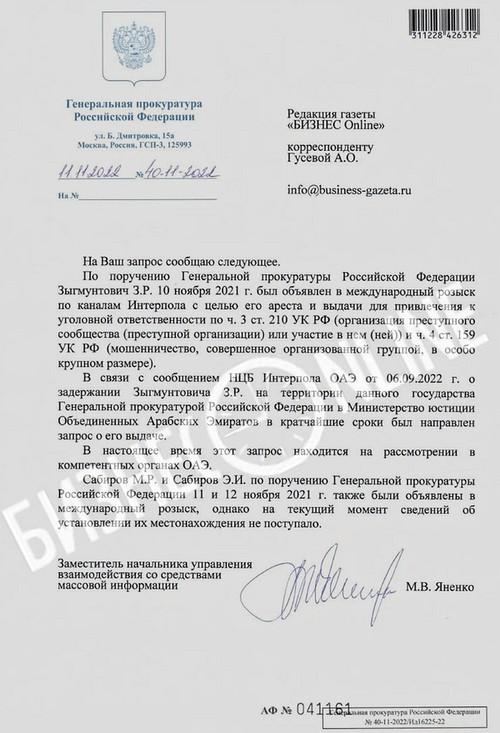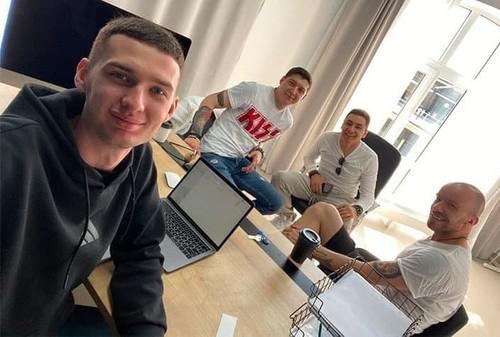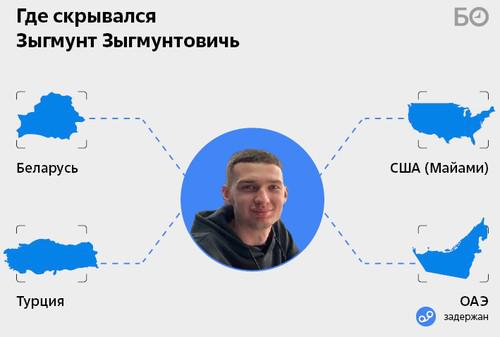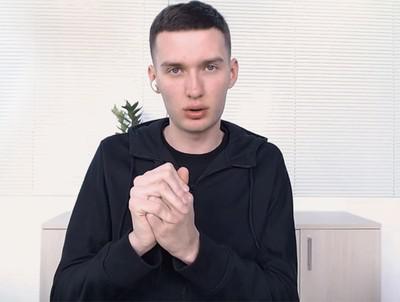Interpol detains fugitive “treasurer” and the most mysterious of the co-founders financial pyramid Finiko, only the official damage from which exceeded 5 billion rubles, Zygmunt Zygmuntovich. This information was confirmed to BUSINESS Online by the Prosecutor General’s Office of Russia. A person was detained in the UAE, in an Arab prison suspected of creating one of the largest financial pyramids has been languishing since September 6th. An extradition request has already been sent to the UAE from the Russian Federation. Experts are sure that it is almost impossible for Zygmuntovich to avoid being sent to Russia – the Arabs extradite fugitives to our country at once. Edvard and Marat Sabirovs, his accomplices in Finiko, could have leaked a comrade to the security forces. But where are they?

As Mikhail Yanenko, deputy head of the department of the Prosecutor General’s Office for media relations, told our newspaper, the message from the National Central Bureau (NCB) of Interpol in the UAE about the detention of Zygmuntovich was received on September 6. “The Prosecutor General’s Office of the Russian Federation sent a request for his extradition to the Ministry of Justice of the United Arab Emirates as soon as possible,” the ministry said. There is no decision on the request yet: the document is still under consideration “by the competent authorities of the UAE,” the Prosecutor General’s Office specified.
There is no official information about the circumstances of the detention. According to one of the versions of our interlocutors, Zygmuntovich could have been handed over to Interpol by his former partners – Edward Sabirov and Marat Sabirov (namesake).

They are also on the international wanted list in the Finiko case. At the top of the pyramid there was a discord, our interlocutors point out, against the background of which Zygmuntovich was detained. The quarrel between the members of the trio happened in the summer. Then all three suspects were in the UAE. However, where the Sabirovs are now is unknown.

Will there be an extradition? Lawyers are sure: “Emirates issue at a time”
I would like to believe that the detention of defendants in criminal cases on financial pyramid schemes abroad will become commonplace. But so far these are extremely rare cases, and Zygmunt is one of them. The “pioneer” was the co-founder of Frendex Dmitry Chechulin. In August 2021, three days before the collapse of the financial pyramid, he left the country – exactly as Zygmuntovich did. He was put on the international wanted list and less than a year later he was detained in Italy. He was released on bail of 500 euros the very next day, and was ordered to report to the Italian police station twice a week. Despite the fact that formally he is free, in fact he is waiting for a decision on extradition. Four months have passed since the arrest.
Is extradition from the UAE possible? “Until 2016, many fled to the Emirates: there was a paradise, the legislation allowed extradition to be dragged along as much as necessary. But in 2016, the Emirates signed an agreement with Russia on the mutual extradition of wanted people, which greatly simplified this situation. And now the Emirates give out at once. As a rule, they make a decision to extradite more often than not to extradite,” said lawyer Dmitry Khomich (A2K law office) in a conversation with BUSINESS Online.
The agreement in question was signed in Abu Dhabi in November 2014 and ratified by Russian President Vladimir Putin in early 2016. Until that time, however, the UAE also extradited wanted persons to Russia, although not always, on the basis of the principle of reciprocity. The last time the parties discussed mutual cooperation in the fight against crime was at the end of 2021: then the Prosecutor General of the Russian Federation Igor Krasnov paid an official visit to Abu Dhabi. By the way, an interesting fact: in November 2021, General Ahmed Nasser al-Raisi from the UAE was elected President of Interpol.
As the well-known Kazan lawyer Eric Valeev explained to our publication, under this agreement, the Emirates can extradite to Russia only those persons who face more than 1 year in prison for a crime committed. There are two more conditions: the accusation must not be political and the offense must not be subject to a statute of limitations. In addition, Valeev stressed, the UAE will not extradite a suspect if he is their citizen.
According to Valeev, usually when an alleged criminal is detained in another country, the Russian Prosecutor General’s Office immediately sends a request for his extradition. This is what was done in this case. According to the lawyer, the department can apply for the temporary detention of a person for up to 60 days – until a request is submitted. But this does not mean that after 60 days this person cannot be detained again and extradited to the Russian Federation, Valeev specified. However, for the defendant in a criminal case, this can be a plus. “The term of detention in the territory of the UAE is counted when sentencing in Russia,” the lawyer said.
According to Khomich, on average, the extradition process takes six months. Why such a period? The fact is that after the detention of a Russian in another country, the local prosecutor’s office, on the basis of materials received from the Russian Federation, must check whether all the conditions for extradition are met. “If this investigation in the UAE is not completed, and in principle it is never completed within such a period, then the detainee can be released on bail or someone’s personal guarantee, and then immediately arrested for a period until the court considers,” explains Khomich.
At the same time, the prosecutor can even offer the defendant to get to his homeland himself. If he refuses, then the question of arrest arises. The lawyer notes that in the first case it is impossible to somehow deceive the local authorities and not leave.
“It’s all controlled – you can’t cheat there. Everything is serious with them, it is not for nothing that the UAE is considered practically the safest country in the world, there are cameras everywhere, everything is at the highest level. Almost everyone is detained, it won’t be possible to hide there for a long time,” Khomich said.
According to him, there is almost one hundred percent extradition of fugitives from the UAE to Russia. Moreover, even those who face capital punishment are being extradited. By the way, in the Emirates there is a death penalty. “If before this whole situation (with the SVO and sanctions – ed. note) Europe gave the Russian Federation about 50 to 50, and now it’s clear where it all shifted, then this did not happen with the UAE – they gave out 90 percent and continue to give out the same “, – said the expert.
How the detention will affect the investigation of the Finiko case
The detention of Zygmuntovich has already influenced the course of the investigation of the grandiose criminal case of the financial pyramid. If he returns to Russia before the case goes to trial, he could be put on the same bench as the current defendants. This, in turn, will require additional time: until he gets acquainted with all the materials of the case, until all the interrogations are completed … But the criminal case has already been under investigation for 1.5 years. Therefore, another option that is more beneficial for the investigation is to complete the investigation of the case (earlier, the interlocutors of the publication said that this could happen as early as December 2022), send it to court, and consider Zygmuntovich’s case after extradition to Russia separately from the case of Doronin and other detainees in RF.
In any case, the main thing for law enforcement agencies now is to obtain permission to extradite Zygmuntovich. And for former clients of Finiko – to believe that Zygmunt will not return to Russia empty-handed.









